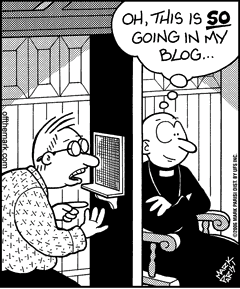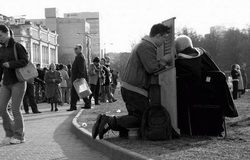 Today's Scripture focus: Psalm 32 A couple of weeks ago, I was sitting in a small room on the third floor of the west tower in the Buncombe County Detention Facility. It was a Thursday morning around 10:45 and we were there as part of our church's prison and jail ministry. At the end of our Bible study, we always try to leave room for the members of the group to ask questions or bring up topics that they may have been thinking about during the week. Aaron, one of the regular members of our study, had been very courageous that day, confessing that he often felt lost in the Bible studies. He didn't have a lot of background in the church or in the Bible and often didn't know what people were talking about, couldn't really follow the conversation, and didn't really know how to grow in his faith. As we talked about the importance of prayer, I mentioned that there are times that I find prayer very difficult. During those times, I often turn to the Psalms because they served as the Book of Worship for the Hebrew people (containing songs and prayers for use in worship). I told the group that I sometimes use the psalms as a starting place for my prayers, praying them aloud until my own words come. Aaron was shocked. "That's what I'm talking about," he said. "I had no idea that the psalms were songs and prayers and that the Hebrew people used them in their worship. That is really helpful to know." This story came to me as I was reading today's scripture. I have a tendency at times to read the songs and prayers of the psalms in a very 21st Century American manner (i.e. very individualistic) - as though these were strictly the psalmist's personal prayers to God (or, when I'm feeling really narcissistic, my own personal prayers). I read today's psalm and I immediately think of times of personal confession - admitting my sins to God. I think of the countless times I've gone to God and admitted the same thing as the psalmist, "I will confess my transgressions to the LORD.” It truly does make sense to me to understand this Lenten journey as a wandering in the wilderness of my own sin and rebellion . . . a time to confront myself and agree with God that I "have fallen short of God's glory." And yet . . .  And yet, I have to remember that these psalms were not only the private worship book of the people, but the public worship book as well. In reading this psalm together, it was not just an acknowledgment that I, as an individual, have sinned, but that the community has sinned (I'm not going to go into detail on that because I included it in the accompanying booklet that goes with this blog. For more on this, see the section in the Lent book titled "Confession" on page five - you can access the digital version of the book here). At its root, confession is a deeply relational practice. While the "justice" system in the United States is structured so that people are convicted for breaking a law of the land or of the state, the biblical picture is that sin is a break in relationships - our relationship with God and our relationship with one another. Confession, likewise, must be understood in such a relational manner. When we confess, we are acknowledging that have wronged one another, we have broken the sacred trust of our relationship, and we have damaged our relationship with God. Confession is an act of seeking healing, forgiveness, and reconciliation as a community (with one another and with God). As a result of this corporate confession, we find that divine forgiveness is no private affair either. As we confess our sins to one another and to God, we also become the mediators of God's forgiveness. What did Jesus say in the gospels? He said, "Truly, I say to you, whatever you bind on earth shall be bound in heaven, and whatever you loose on earth shall be loosed in heaven." (Matthew 18:18 ESV) Isn't this the essence of community, confession, and repentance? As we loose one another from the obligations and guilt with which sin has imprisoned us, God will likewise loose them in heaven. As we bind ourselves to one another in love and reconciliation, God will likewise bind us together into the beloved community, the body of Christ on Earth. Yes, we will have to say confession is a courageous act. It is not for sissies. It is for those who are daring enough to live into a radical community of reconciliation and healing - one where we dare to lay our sins bare before our brothers and sisters, only to hear these words echo in our ears, "I forgive you. I love you." Prayer: God, give me eyes so that I may see the truth of my sin. Give me a broken heart over the relationships I've damaged. Give me strength to confess those sins to you and to those in my community. And give us healing and forgiveness in Jesus' name. Amen.
1 Comment
|
Ecclesia Writer's ConsortiumWe are blessed at Ecclesia to have a number of gifted writers and teachers. Here, you'll find devotions, meditations, and musings from a sample of those writers. Archives
June 2015
Categories
All
|
 RSS Feed
RSS Feed